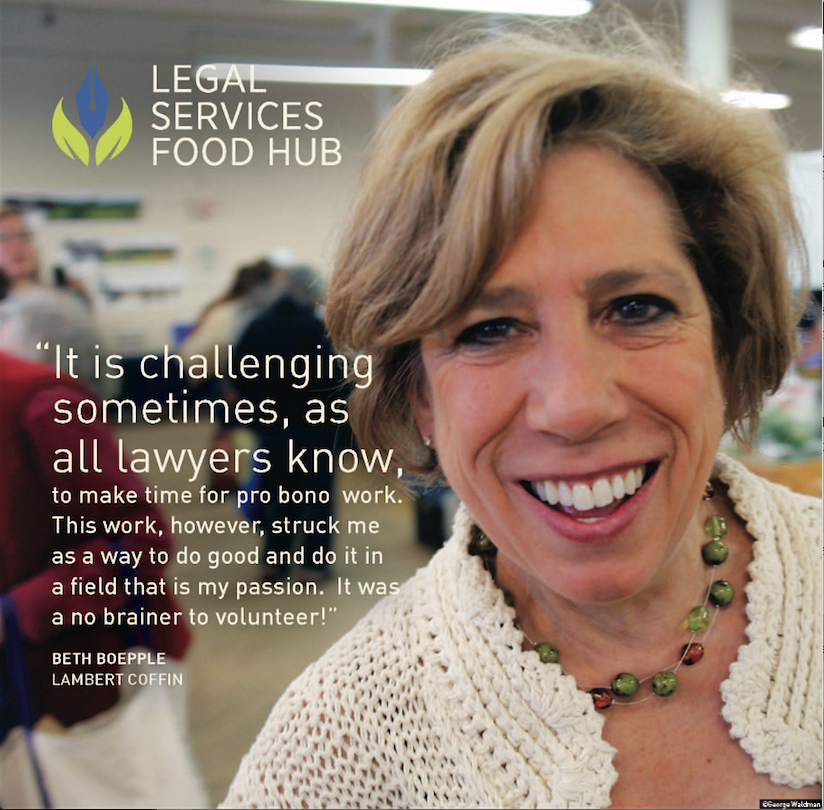The first two things noticeable about Beth Boepple (pronounced “BEP-lee”) are her high wattage smile and her clear, relaxing voice. She comes by her impeccable speech habits from her parents: her father was head of the UVM Theatre Department for many years and her mother became a speech pathologist. The smile is likely fed from love of her brand of legal work, which she pursues in Maine at the law firm BCM Environmental & Land Law, PLLC. Previously, Beth was an attorney at Lambert Coffin. While there, she and her partners pioneer a food and farm section in their practice. “Our goal is to get one started in the Maine Bar Association as well,” she says enthusiastically.
At a recent UVM summit on food security and food systems, Beth was often seen engaged in thoughtful conversations with entrepreneurs and academics concerned with regional food and farm issues. Over dinner one night with a community garden/food sovereignty researcher from Johannesburg, South Africa and a food pantry/food safety analyst and soon-to-be U.S. General Accounting Office analyst, Beth shared experiences and listened carefully when talk turned to policy issues that intersect with the practical.
Whether on the international, national, or local level, Beth explains her comfort with the details of food purveyance:
“Just prior to attending law school as an older student, I partnered on one of the first farm-to-table restaurants in Vermont. We saw it all—when you bypass the bigger corporate food suppliers, you are faced with how to get seafood from the boat to the chef and still keep it as fresh and economical as possible! That process would be repeated with other local and specialty food purveyors—I still remember the mushroom deals. All the intervening transactions with local producers really fueled my dedication to help farmers and the New England local food industry with their legal needs.”
Beth has a robust law practice. Amongst other areas, she focuses on business entity formation, especially for farm and food businesses. She also works in real estate and permitting and licensing—a routine part of a farm-and-food practice.
Why does she volunteer for the Legal Food Hub for work she does anyway?
“It is challenging sometimes, as all lawyers know, to make time for pro bono work. It can take on a life of its own and eat up a lot of time. Work for the Maine CLF Legal Food Hub, however, struck me as a way to do good and do it in a field that is my passion. It was a no-brainer to volunteer!”
